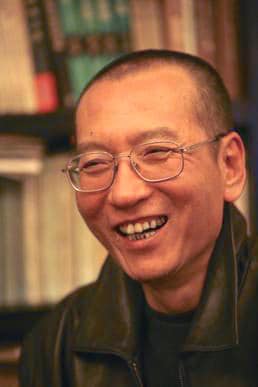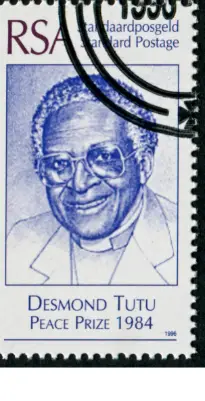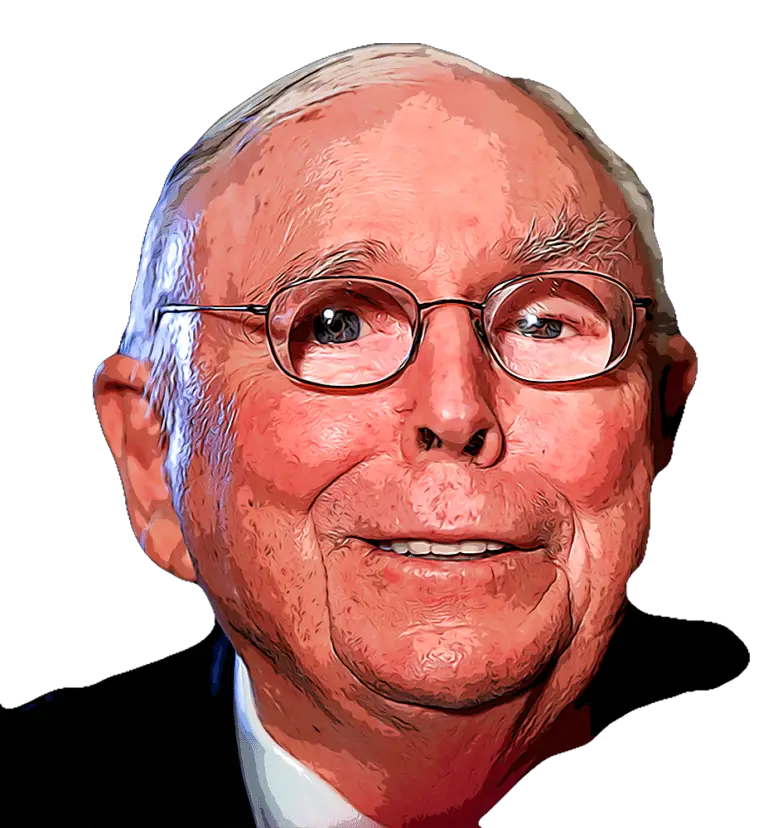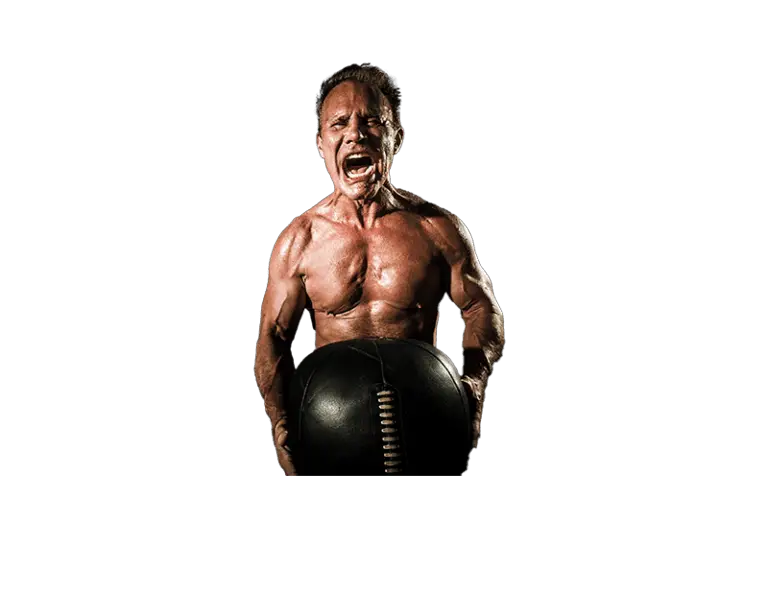7 people who showed moral courage throughout history!
This article tells the stories of 7 great morally courageous people. These are men and women who pushed back against societal pressure and perceived limitations, in order to make the world safer and more ethical. There were huge steps forward in politics, healthcare, and even the fight against slavery and fascism as a result of the choices of these giants of moral courage.
Moral courage- what is it exactly?
It is helpful to begin this article by clarifying exactly what is meant by moral courage. Moral courage was actually studied at length by Silvia Osswald and others for the American Psychological Association back in 2010. (click here for full study)
In their paper, moral courage was defined as “brave behaviour, accompanied by anger and indignation, intending to enforce societal and ethical norms without considering one’s own social costs”
It was this definition that was used when putting together this list. I hope that these heroic people will encourage and inspire you to be more morally courageous in your own life!
7 people who showed moral courage
Emmeline Pankhurst

Born in 1858 in the moss side district of manchester, Emmeline Goulden grew up in a politically active household. From the age of 14, Emmeline became involved with the women’s suffrage movement. The movement was concerned with women being given an equal voice in society, more reasonable working conditions, and the right to vote in elections.
Emmeline and her husband Richard Pankhurst were highly active in the London political scene, their house in Russell Square becoming a hub for “socialists, protestors, anarchists, Suffragists, free thinkers, radicals, and humanitarians of all schools”
Emmeline set up the women’s franchise league in 1889. Whilst there were a number of women’s suffrage organisations throughout the country at that time, the WFL was considered extreme. In addition to the right to vote, the WFL believed in equal rights for women in the areas of divorce and inheritance.
After the tragic death of her husband, Emmeline took a job in a registrars office to try to pay off the family debt. Here she saw the poor conditions of working women more clearly.
By 1903 Pankhurst was convinced that the various organisations with their intentions for women’s rights had yielded insufficient progress. She founded the Women’s Social and Political Union along with several others. The group was only open to women and was focused on direct action. She wrote of the group later:
“Deeds, not words, was to be our permanent motto”
Whilst the WSPU’s actions started with non-violent protests and the publishing of their own newspaper, Pankhurst became convinced that getting arrested for their action was an effective way to spread the women’s suffrage message.
In 1909 she struck a police officer twice in the face to get herself arrested. In her trial she was quoted:
“We are not here because we are law-breakers; we are here in our efforts to become law-makers”.
The actions of the WSPU included hunger strikes in prison, arson, to even more extreme measures. Emily Davidson famously threw herself under the Kings horse at the Epsom derby, with her funeral attended by 55,000 people. One WSPU member inscribed “votes for women” into a hatchet, and put that hatchet into the prime minister’s carriage.
After years of extreme difficulty, women’s suffrage finally started to become a reality in 1918. Whilst the ethics of Pankhurst’s extremist measures have been questioned, Pankhurst clearly played a crucial role in the progressive improvement in women’s rights throughout the 20th century. It was the morally courageous deeds of women like Pankhurst and Davidson that resulted in votes for women in elections.
Read also: Can courage exist without fear?
Fredrick Douglass

Fredrick Douglass was born a slave in 1817 or 1818. His mother was a slave (she died when he was 7), and his father was assumed to be their white slave master Captain Anthony.
Although Douglass’ life as a slave was certainly brutal, he started out relatively fortunate. He was given to captain Anthony’s son in law, Hugh Auld, who lived in Baltimore. Slaves in the city tended to experience more pleasant lives than slaves in the country, as people did not want to appear cruel in society amongst non-slave owners.
Hugh Aulds wife Sophia had never owned slaves before, and in the beginning, she treated Douglass kindly. She even began teaching him how to read. Eventually, her husband ordered her to stop, saying that “education makes slaves unmanageable”. Over time, Sophia’s mentality changed and Douglass was treated more cruelly. Despite this, he continued learning how to read, with the help of local boys.
After the death of captain Anthony, Douglass was taken to serve a man named Thomas Auld, the owner of hundreds of slaves. Auld considered Douglass unmanageable, so rented him for a year to Edward Covey, a brutal man known for “breaking” slaves. In the first 6 months, Douglass became animalistic and went from having interests of his own to be concerned only with eating sleeping and resting from his injuries.
The depth of Douglass’ character was shown when he resolved to fight back against Covey. The two men fought viciously for two hours, and after that day Covey never again touched Douglass. This was a major turning point for Douglass, who had a renewed sense of his own manhood and a desire to escape to the north.
“The battle with Mr Covey was the turning point in my career as a slave. It rekindled the few expiring embers of freedom and revived within me a sense of my own manhood. It recalled the departed self-confidence, and inspired me again with a determination to be free”
After Covey, Douglass was rented for two years to William Freeland. Here, Douglass began to educate his fellow slaves at a sabbath school. Many slaves from neighbouring farms came to Douglass to learn to read, despite the risk of violent punishment.
At Freelands, Douglass and some other slaves planned their escape to the North. Someone informed Freeland of the plan, however, and the slaves involved were taken to jail. Douglass was then sent back to Hugh Auld in Baltimore.
After securing an apprenticeship in ship caulking, Douglass was forced to move shipyards after white workers used violent intimidation. These workers were worried that black caulkers like Douglass would take their jobs. Despite this setback, Douglass was soon earning the highest wages possible, with all of his wages being turned over to Hugh Auld.
Douglass was able to convince Auld to hire out his extra time, meaning he could start to save some of his own money. He used these little savings he had to make his escape to New York City. He was helped tremendously by a free black woman named Anna Murray, who he went on to marry shortly after arriving in New York.
The couple settled in Massachusetts, where Douglass became a prominent orator and abolitionist. Douglass’ inspiring public speeches were renowned- here was a man who had seen the very worst of the slave trade and could talk with precision and passion about what he had seen.
Narrative of the Life of Frederick Douglass, an American Slave was published in 1845 and was a book that helped change the conversation on slavery at that time. Douglass went on to cofound the newspaper the North Star. The paper’s motto read
“Right is of no sex- Truth is of no colour- God is the father of us all, and all we are brethren”
Frederick Douglass played an instrumental role in black men being allowed to fight in the civil war. He believed that by black men showing such patriotism, the abolitionist movement could make huge progress in white peoples perception of black citizens. He believed in this idea so much that he enrolled his own sons.
Douglass’ advocacy was a contributing factor to Abraham Lincoln’s Emancipation Proclamation in 1863, freeing slaves in 10 states. This proclamation had a significant effect on the civil war.
After the war, Douglass continued to write books and essays and served multiple political appointments. Douglass lived a life of extreme moral courage and used his gifts of literacy and oracy to change peoples perception of black people and slavery in America and worldwide.
Read also: The Bitcoin Standard by Saifedean Ammous (review/summary)
Florence nightingale

Florence nightingale was born in Florence, Italy in 1820 to wealthy English parents. Nightingale was clearly gifted intellectually; she could read and write 5 languages from a young age and enjoyed debating philosophy and politics with her father.
A highly religious young woman, Nightingale experienced the first of many “calls from God” aged 16. She felt that her unique calling was to reduce human suffering.
Despite a strong call to nursing, Nightingale’s family objected strongly as nursing was seen as a low-level profession at that time. Eventually, after years of family disputes, Nightingale resolved to pursue her calling. She trained at the institution for protestant deaconesses at kaiserswerth in Germany. She served as superintendent of the institution for sick gentlewomen. She also cared for prostitutes during a cholera epidemic in 1853.
What made her name, though, was the remarkable and transformative role she played in the Crimean war.
Sidney Herbert, Secretary of state at war for the British Government, wrote a letter to Nightingale asking for her to lead a group of nurses to Scutari the barrack hospital. (Incidentally, Nightingale actually wrote a letter to Herbert’s wife offering her help at the same time, the letters crossing in the post!)
Nightingale led a party of 38 nurses to Scutari (today a part of Turkey) on 5 November 1854. Shortly after her arrival, injured soldiers from the Battle of Balaklava and the Battle of Inkerman came and absolutely overwhelmed the hospital. Nightingale deemed the operation filthy, understaffed and undersupplied.
Nightingale threw herself and the resources at her disposal at turning around the conditions at the hospital. Beyond securing supplies using funds provided by the London Times, Nightingale insisted upon “Standards of care” like bathing, clean clothing and dressings, and adequate food.
Beyond this hospital reform, Nightingale could be found going bed to bed through the night at the hospital. This regular practise earned her the nickname “Lady with the Lamp”, as well as the respect of the soldiers and the medical establishment. Over the next 2 years, Nightingale pushed to reduce the mortality rate in the hospitals in Scutari. She remained there until the end of the Crimean war in 1856.
“The very first requirement in a hospital is that it should do the sick no harm”
Nightingale kept extensive records during her time in Crimea. Upon her return, she was given a sizeable gift from the British Government which she used to set up the Nightingale Training School for Nurses, based at Londons St Thomas’ Hospital, followed shortly after by a school for midwives.
Although diseases which she contracted during the war left her bedridden, Nightingale Wrote extensively. Two of her books, in particular, Notes on hospitals and Notes on Nursing: What it is and What it is not, continue to be studied by nurses to this day. Much of what we now take for granted as a decent practice originated with Nightingale. Here is an example, taken from one of her books:
“Every nurse ought to be careful to wash her hands very frequently during the day. If her face too, so much the better”
Nightingale also worked extensively on improving the conditions in the slums and workhouses of Britain. It is hard to overstate her effect on modern public health today. Nightingale displayed great moral courage just by becoming a humble nurse given her social standing; the impact that she had on the field speaks to her gifting and resolve.
Liu Xiaobo

Liu Xiaobo was born in the Jilin province in China on 28 December 1955. He was, in short, the most prominent advocate for human rights and political reform in China.
In 1989, the death of the general secretary of the communist party sparked passionate protests in Tiananmen Square, which was seen as the countries symbol of sovereignty. This was a time when the ethics of the communist nations was being questioned more and more. An estimated 1 million people joined demonstrations across Beijing, with around 300 students going on hunger strike in Tiananmen square until they could talk face to face with communist party leaders. These students wanted freedom of the press and an end to official corruption.
To cut one of the most significant moments of the 20th century short, the Chinese army ended up open firing on its own citizens. The estimate of those who died ranges from hundreds, up to hundreds of thousands. Liu Xiaobo was there that day. He was the professor who sided with the students, trying to help them to have their message heard peacefully.
He was also the man who negotiated with the people’s liberation army the exit of many students from Tiananmen square before the tanks rolled in, saving countless lives.
Charter 08 is a political manifesto drawn up primarily by Liu Xiaobo and signed by “The broadest coalition of reformist thinkers we’ve seen in China since 1989”. The charter is not a manifesto to overthrow the communist party but is rather a call for basic human rights and the reinstatement of the values guaranteed under the Chinese constitution.
For his writings and the spread of his ideas around reform, Xiaobo has been made an example of by the Chinese authorities. Although he has committed no crime other than publishing ideas of peaceful reform, Xiaobo was imprisoned for 11 years, before being held under house arrest.
Xiaobo sacrificed himself for his beliefs. In 2010, his extraordinary activism was honoured with a Nobel Peace Prize, whilst he was under house arrest. He passed away in 2017. It is hard to think of a more morally courageous act than spending over 10 years in prison having committed no crime, other than trying to bring political reform and equality to china. The man is an inspiration.
Check out this video made by the BBC of Liu Xiaobo’s incredible accomplishments:
Desmond Tutu

Born in South Africa in 1931, Desmond Tutu started his career as a school teacher. He was a man of god and resigned from teaching to study at St Peter’s Theological College in Johannesburg. He was ordained as a priest before studying at King.s College in London.
Tutu later became General Secretary of the South African Council of Churches. He was a powerful public speaker, who stood with black South Africans during the Apartheid and spoke out against Ronald Regan’s support. The weight of Tutu’s impact came from the power of his words, and his unwavering belief in peace.
Here are, in my opinion, two of Tutu’s most influential and morally courageous exploits. The first is from a speech given in 1988, at the height of apartheid. Tutu organised a boycott of regional elections in an effort for revolution:
“I urge black people…not to vote in the October elections. And I hope that white Anglicans will join their black fellow Anglicans in that action. I am aware of the penalties attached to this call. I am not defying the government. I am obeying God,”
The second moment comes from 1984 when Tutu travelled to Washington to denounce the Reagan administration’s support for South Africa’s Apartheid government:
“Apartheid is as evil, as immoral, as unchristian in my view as Naziism. And in my view, the Reagan administration’s support and collaboration with it is equally immoral, evil, and totally unchristian. Without remainder.”
1984 was the year that Desmond Tutu received a Nobel Peace Prize. This achievement sent a significant message to the apartheid administration at that time.
Over the course of his life, Tutu has held a number of powerful positions in church and government in South Africa. He was appointed by Nelson Mandela head of the Truth and Reconciliation Commission and was appointed the first black archbishop of Cape Town in 1986.
Desmond Tutu has stood courageously for many just causes over the course of his life. He has taken a strong moral stand against the war in Iraq, against the Israeli occupation of Palestine, torture and the death penalty. He also stood with the Palestinian led boycott sanctions and divestment movement. Tutu remains a man of great moral courage and social responsibility- The number of other causes, that Tutu has taken a public stand on over the years, are seemingly too great to name.
Dietrich Bonhoeffer

When the Nazis rose to power in the 1930s, the German Evangelical church was split into three rough groups. The first became known as the “German Christians”, a group of evangelists who were affectively brainwashed by the Nazi ideology to promote the Nazification of german Protestantism through the creation of a pro-Nazi “Reich Church”.
The second group formed the majority of Christians in Germany at the time. Although the church took a clear stand against German Christians, most of its leaders avoided directly criticising the nazi regime for fear of punishment. The majority of the church remained completely silent about the persecution of Jews in Germany.
Dietrich Bonhoeffer was a rare man in this third category. He publicly spoke out against Naziism right from 1933, When he came out with an essay entitled “The Church and the Jewish Question”. Bonhoeffer’s argument was powerful as one of the earliest examples of a Christian publicly rejecting National Socialism.
From 1933 until his execution in 1945, Bonhoeffer showed moral courage in a number of ways. When his Church Seminary was shut down by the Gestapo in 1937, he spent two years secretly travelling through Germany teaching his students, who were working illegally.
Bonhoeffer also played a role in “operation 7”, a plan to get Jews out of Germany by giving them papers as foreign agents. Bonhoeffer was a contributing member of the resistance groups, that in 1944 tried to assassinate Adolph Hitler.
Bonhoeffer’s resistance efforts were discovered and he was charged with conspiring to rescue jews amongst other crimes. He was hanged on April 9 1945, alongside other courageous conspirators.
The great moral courage of Dietrich Bonhoeffer can be clearly seen with some of his own words, shown below.
“We are not to simply bandage the wounds of victims beneath the wheels of injustice, we are to drive a spoke into the wheel itself”
“When Christ calls a man, he bids him come and die”
“Action springs not from thought, but from a readiness for responsibility”
Muhammad Ali
Muhammad Ali was born Cassius Marcellus Clay on the 17th of January 1942. Clay started boxing aged 12 after his bike was stolen, and he won his first-ever bout just 6 weeks later.
Clay grew to become one of the most decorated amateur boxers of his time with a record of 100 wins and 8 losses. He won 2 golden gloves titles, as well as a gold medal in the 1960 Olympics in Rome.
Clay turned pro after the Olympic success, winning 19 fights in a row before shocking the world by beating Sonny Liston as a 7-1 underdog.
Ali’s boxing career was legendary. He was the first man to win the world heavyweight title three times, as well as the first man to knock down the great George Foreman. Ali goes down as one of the greatest boxing champions of all time. But it was what he did outside the ring, in my opinion, that really sets him apart from other champions.
Muhammad Ali was a Muslim and was against the Vietnam war for religious reasons. He refused to be inducted to serve his country, at a time when this was seen as scandalous and unpatriotic. He was arrested, stripped of his world title, and his boxing license was suspended.
For 3 and a half years, from when he was 25 to when he was 28, Ali was banned from boxing professionally. He held fast to his personal beliefs and effectively gave up his prime years as a boxer to his religious cause. Eventually, public opinion about the war changed, and with that Ali’s boxing license was restored.
For Ali to come back after 3 and a half years, past his prime, and go on to reclaim the heavyweight championship twice, goes to show the weight of his greatness as a boxer. But the fact that he was willing to walk away from boxing and the world heavyweight title in the first place, and never once compromised his own values, demonstrates the sheer moral courage that he had. It is rare for one of the great sporting legends, to also be one of the great campaigners for racial and religious justice. Ali was both, and so earns his place in this list of morally courageous giants.
Enjoyed this article? Check out some of our others!
The Complete No-Nonsense Guide for Becoming a UK Property Investor (REVIEW/SUMMARY)





